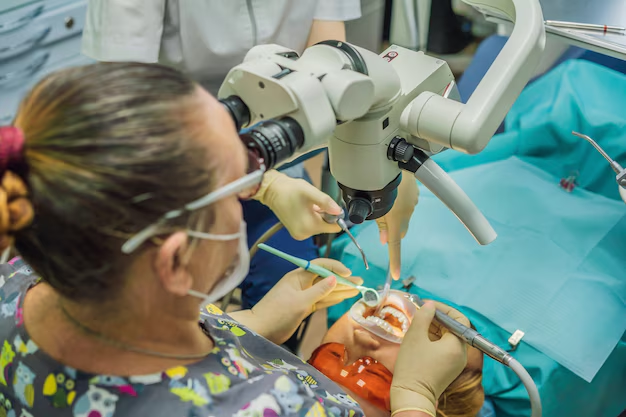Your Guide to How Long Does Cataract Operation Take
What You Get:
Free Guide
Free, helpful information about Cataract FAQ and related How Long Does Cataract Operation Take topics.
Helpful Information
Get clear and easy-to-understand details about How Long Does Cataract Operation Take topics and resources.
Personalized Offers
Answer a few optional questions to receive offers or information related to Cataract FAQ. The survey is optional and not required to access your free guide.
How Long Does Cataract Surgery Really Take? A Comprehensive Guide
Cataract surgery is one of the most common and successful procedures performed around the world. If you've been diagnosed with cataracts or are supporting someone who has, understanding the details of the surgery can alleviate anxiety and help set realistic expectations. A common question that arises is, "How long does cataract surgery take?" Let's explore this and related aspects to give you a well-rounded understanding.
⭐ The Surgery Timeline: What to Expect
Pre-Surgery Preparations
Before diving into the specifics of the cataract surgery duration, it's essential to understand that preparation begins well before you step into the operating room.
- Pre-Assessment: You will have a consultation with your ophthalmologist to assess the condition of your eyes, discuss the procedure, and make any necessary pre-surgery preparations.
- Measurements: Accurate measurements of your eye will be taken to determine the appropriate lens implant. This crucial step ensures optimal vision correction and surgery success.
- Instructions: You'll receive instructions on eating and drinking before surgery, medications, and transport arrangements as you won't be able to drive post-procedure.
The Procedure
Cataract surgery itself is remarkably swift, especially when compared to many other surgical procedures.
- Duration: The actual surgical procedure typically takes about 10 to 20 minutes per eye. However, the total time spent at the surgical facility is longer due to preparation and immediate post-surgery recovery.
- Method: The procedure involves the removal of the cloudy lens in the eye, followed by the implantation of a clear artificial lens. This is most commonly done using a technique called phacoemulsification. A small incision is made, and the cloudy lens is broken up using ultrasound waves before being removed and replaced with a new lens.
- Efficiency: Thanks to the advancements in technology and techniques, cataract surgery is highly efficient, and most patients can return home the same day.
Post-Surgery Recovery
The recovery period is just as important as the surgery itself.
- Initial Monitoring: After surgery, you will be monitored briefly, typically for about 30 to 60 minutes, to ensure there are no immediate complications.
- Instructions: You will receive specific instructions on care, including how to use eye drops and when to follow up with your surgeon.
- Short-Term Effects: Most patients notice an improvement in vision just a few days after surgery, although complete healing may take a few weeks.
👁️🗨️ Factors Influencing Surgery Time
Understanding that the procedure duration can vary helps manage expectations.
Patient-Specific Factors
- Health Conditions: Pre-existing health conditions, such as diabetes or hypertension, may slightly extend preparation time.
- Severity of Cataract: Denser cataracts might require more time to remove thoroughly.
Surgical Considerations
- Technology: The technology and equipment used, such as laser-assisted surgery, can impact the duration. More advanced technology often enhances precision but does not necessarily extend the procedure.
- Surgeon Expertise: An experienced surgeon can perform the procedure efficiently, often translating to quicker surgery and recovery times.
🔍 Related Subtopics to Enhance Understanding
Types of Cataract Lenses
An overview of lens options is crucial, as the choice can affect postoperative vision.
- Monofocal Lenses: These are the most common and typically provide clear vision at one distance, usually far.
- Multifocal Lenses: Designed to give clear vision at multiple distances, minimizing dependency on glasses.
- Toric Lenses: Correct astigmatism along with cataracts.
Anesthesia Used During Surgery
Most cataract surgeries are performed using local anesthesia.
- Topical Anesthesia: Usually in the form of eye drops, it numbs the eye without the need for injections.
- Sedation: A mild sedative may be administered orally or intravenously to help keep you relaxed.
Importance of Post-Surgery Care
Proper post-operative care is crucial for swift recovery and optimal results.
- Eye Shields: Often prescribed to protect the eye, especially during sleep.
- Eye Drops: Antibiotics and anti-inflammatory drops aid in healing and preventing infection.
- Activity Restrictions: It's usually advised to avoid strenuous activities for a week or two.
📋 Quick Summary of Key Takeaways
- ⏱️ Time Frame: The actual cataract surgery typically takes around 10 to 20 minutes.
- 👨⚕️ Total Visit: Expect to be at the facility for a few hours due to preparation and immediate recovery.
- 📉 Influencing Factors: Health, the severity of cataracts, and technology used can affect timing.
- 🔄 Recovery: Improved vision can be observed within days, but full recovery may take weeks.
- 📝 Post-Care: Follow all postoperative instructions carefully for best outcomes, including using prescribed eye drops and attending follow-up appointments.
🏁 Wrapping It All Together
Cataract surgery, although brief in terms of the procedure itself, encompasses a series of steps that ensure successful outcomes. From pre-surgery assessments to post-surgery care, each phase plays a vital role in restoring vision. Understanding these elements helps demystify the process, making it more approachable and less daunting. While each person's experience may differ slightly, the core aspects of cataract surgery remain consistent. Whether you're considering surgery yourself or supporting someone through it, having this knowledge empowers you with confidence and clarity.
What You Get:
Free Cataract FAQ Guide
Free, helpful information about How Long Does Cataract Operation Take and related resources.

Helpful Information
Get clear, easy-to-understand details about How Long Does Cataract Operation Take topics.

Optional Personalized Offers
Answer a few optional questions to see offers or information related to Cataract FAQ. Participation is not required to get your free guide.


